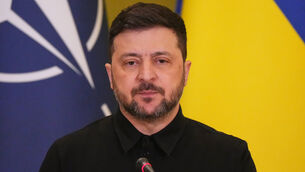American Taliban 'guilty of being an idiot'
At first, he couldn’t tell the man was any different from the other wounded Taliban and al-Qaida fighters at the makeshift hospital: bleeding, in pain, covered in filth and with matted hair.
Then Robert Young Pelton, an American writer travelling with Afghan warlord Rashid Dostum, heard him speak: ‘‘John,’’ the man mumbled. ‘‘Washington DC.’’














